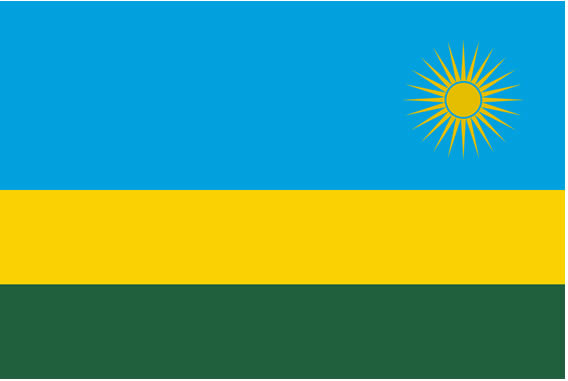
Assessing African economies by their per capita Gross Domestic Product income we find some governments in Africa doing well for their people. Using Ghana’s per capita GDP of approximately $2,000 as benchmark we can carry out a country-by-country comparison. Good to start with Paul Kagame’s Rwanda with a per capita GDP of $822. He is perceived as a performer and he has multiplied his countrymen’s per capita GDP four folds on assumption in April of 2000. However, there is an African country with eight times Rwanda’s per capita GDP (2021 figures) whose leaders remain uncelebrated in Africa.
Economic high flyers in Africa are Seychelles and Mauritius with per capita GDP of $14,653 and $9,106 respectively. They are not typical African countries being small Islands miles off the coast of the continent in the middle of the Indian Ocean, with a sizable Indian population. Worthy of mention on the continent is Namibia with a per capita GDP of $4865 dollars compared to Nigeria’s declining per capita GDP of $2,065.
Most worthy of note is Botswana, a landlocked country in Southern Africa with per capita GDP of $6805 three-half times Nigeria’s and eight times Rwanda’s. When Botswana gained independence from Britain in September 1966, it had 12 kilometres of tarred roads and 22 university graduates. Its per capita GDP was a mere $90 in 1966 with a subsistence economy and majorly pastoral population. Then came in Seretse Khama as its first president and he went on to change the narrative.
We need to inquire if Botswana had some things going for it that produced this superlative economic growth, on occasion the fastest-growing economy in the world! Botswana never became a colony but a protectorate of Britain. The British didn’t have much use for Botswana and left its administration to the traditional chiefs. Then known as Bechuanaland, it had no resource of note to be extracted from the country as 75 per cent of the country was the Kalahari Desert. It was a territory not worthy of the British to warrant full colonisation.
The Tswana tribe comprises 79 per cent of the Botswana population, meaning the country is not totally homogeneous, homogeneity considered an advantage as heterogeneous countries tend to have more political rancour. Notwithstanding, there are several clans each with traditional chiefs. Literacy rate in the late sixties was near zero with just 100 secondary school graduates. Botswana was then the third poorest country in the world.
How did the poorest African country become the richest sub-Saharan country with per capita GDP comparable to East European countries? What did they get right? It was a combination of getting their politics and economic choices right. They have Seretse Khama, President from 1966 to 1988 and his successor Quett Masire to thank for. They both laid the groundwork for the unchequered performance of Botswana. Yet they remain unknown across the continent especially unknown to Nigerian intelligentsia. Firebrands such as Paul Kagame, Julius Nyerere, Muammar Ghadaffi and Thomas Sankara have their praises sung to the high heavens. The miracle in Botswana that has insights on development and transformation remains unrecognised.
As in newly independent nations Botswana chose representative democracy as its form of government over the rule by traditional chiefs but they retained the political inclusiveness which is a hallmark of Botswana’s traditional governance. Seretse Khama had dropped his claim to traditional chieftaincy and floated a political party, Botswana Democratic Party, that won the first elections. They were no more under British protection and they set to work. It’s not transiting to democracy that is important but that Botswana has not made a mockery of it like many African countries. Free fair elections have been held successfully as and when due.
Realising that the mainstay of the people was nomadic cattle rearing they restructured how cattle rearing was done and introduced pastoralists to modern ranching. They did not stop there, they secured export markets in the European Union for the beef produced in the new country. Cattle business moved from subsistence and prestige to operating in the global value chain.
In the 1970s diamonds were discovered in some territories of Botswana and fortunately, the discovery had not occurred under the Brits or their forerunner, the notorious land grabber. With the discovery Botswana was at an inflection point and decisions made could make another Sierra Leone of them or a prosperous nation. It’s obvious they have made a better choice as they evaded the bullet of a resource curse.
Botswana negotiated good terms for their diamond exports and kept diamonds out of the hands of chiefs. Other favourable economic decisions were implemented like becoming a major exporter of beef, now the fifth largest beef exporter in the world. Despite being surrounded by hostile white regimes of South Africa, Rhodesia and South West Africa, now Namibia, they played realpolitik and did not get sucked into surrounding freedom struggles. Being landlocked they needed these surrounding countries for their exports and imports.
With revenues from diamond exports, Botswana did not lose their fiscal discipline and has maintained yearly budget surpluses for decades. They implemented liberal economic policies and this resulted in low ease of doing business ranking hovering below 40 in early 2000s. The private sector grew at an impressive 10 per cent per annum. Despite increase in foreign currency inflows they seem to have dodged Dutch Disease that afflicts rich countries. Botswana is considered the least corrupt country in Africa with the freest economy only surpassed by the other high flyer Mauritius.
With these Botswana has sustained one of the longest economic booms in the world equalling East Asian countries in the sustenance of economic growth. Yet the late Seretse Khama and his successor Quett Masire are not known to the Nigerian intelligentsia. It’s the firebrands like the late Muammar Ghadaffi of Libya, bad example, the socialist ideologue Nyerere of Tanzania, thank God he did not die in office else CIA would have been held responsible. Other heroes of Africa include Kwame Nkrumah, rightly so, Sekou Toure of Guinea whose country continues to languish. I believe this is a sad commentary that speaks volumes of African intellectuals playing to the gallery rather than to substance.
However, nothing lasts forever and there are ominous signs ahead of Botswana. There seems to be no clear agenda for Botswana to escape the middle-income country trap like Singapore did. That indeed should be their next transformation target. Also, in the last few years has occurred a rapid decline in their ease of doing business ranking, from 40 in 2006 to 87 in 2020! This reversal of fortunes is a symptom of underlying reversal of sound economic policies now leading to political tensions and rumblings as the son of the late Seretse Khama, Lt.General Ian Khama, wants to return to power after relinquishing it in 2018.
Lessons for Nigeria: Polity restructuring is needful for Nigeria but whatever political system Nigeria adopts wouldn’t necessarily translate to sounder economic choices. From the low ease of doing business ranking of Mauritius and Botswana, we note that they stuck liberal economic policies for decades. On the other hand, Nigeria’s statist mentality has us way back on this list of ease of doing business. You can’t improve your ranking by anti-business bureaucracy that always dictates to businessmen. Furthermore, that the power sector was recently devolved to state governments rather than it being a purely private business concern confirms this statist mentality.
An urgent lesson Nigeria can learn from Botswana is how to introduce our herdsmen to ranching. Seeking export markets for our lean organically produced Nigerian beef, tasty mutton and the popular goat meat, ogunfe.





